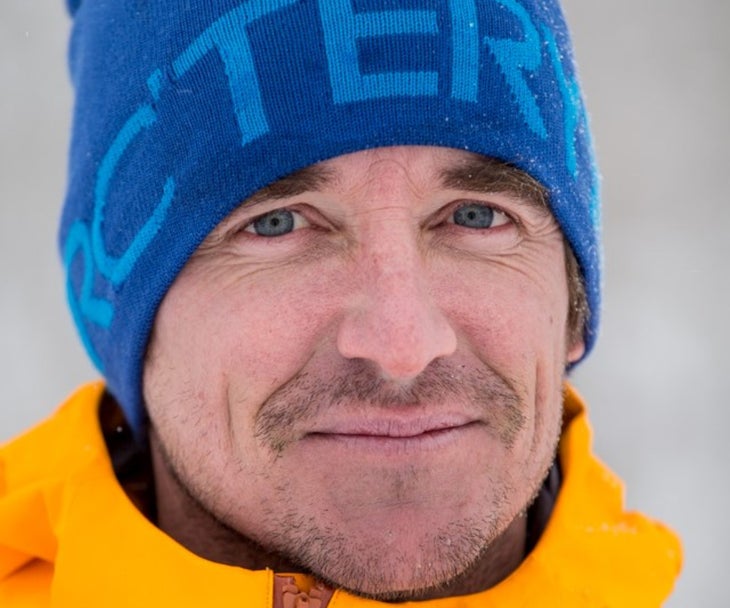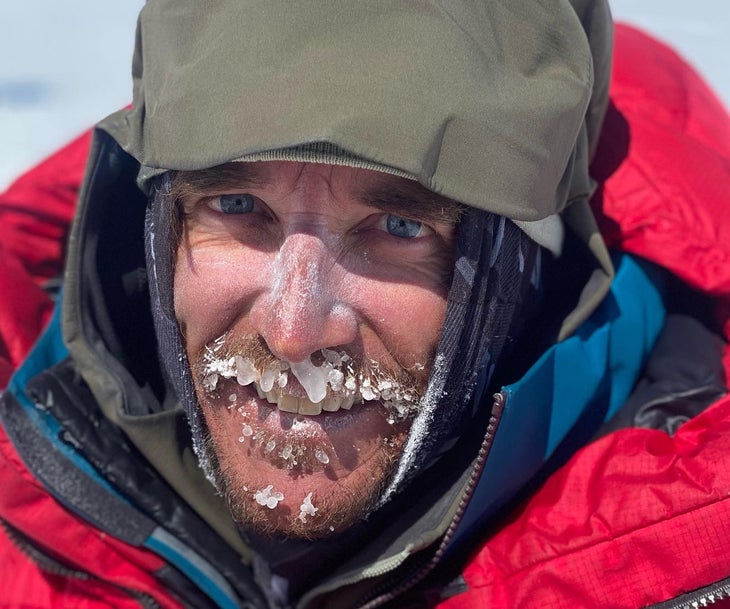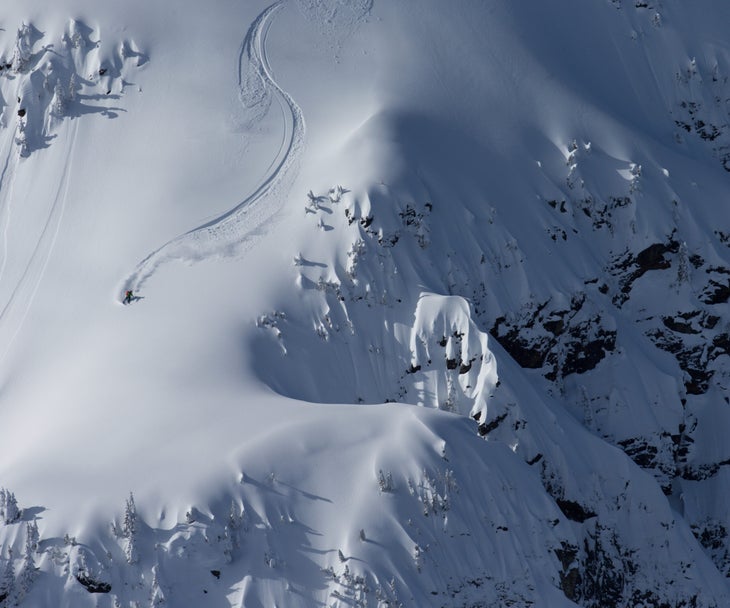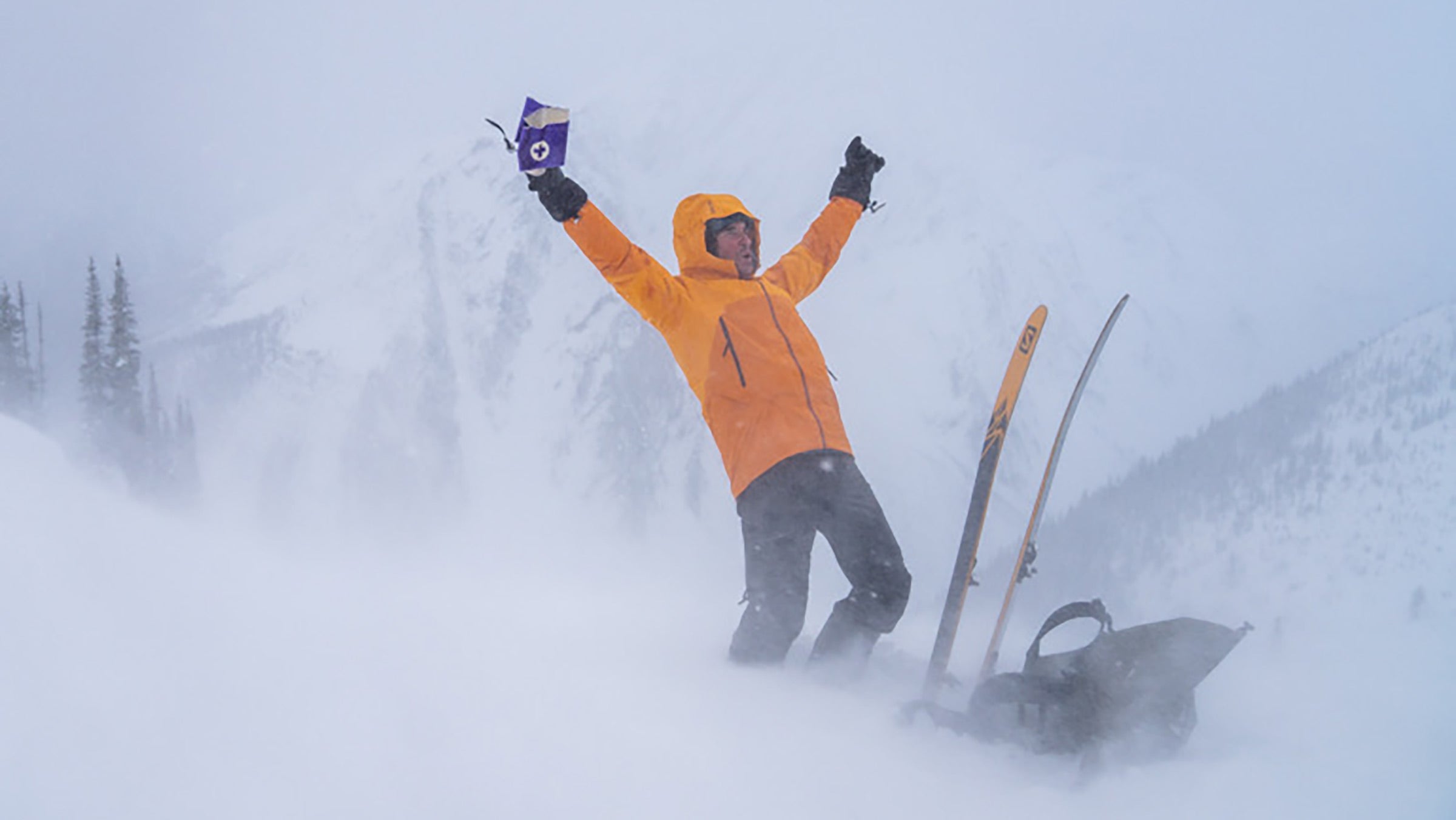If, like most people, you live your life outside the small community of elite ski mountaineers, you may have never heard the name Greg Hill. Born far from big mountains in Quebec, Canada, Hill moved west to Revelstoke, British Columbia, with dreams of becoming a heli-skiing guide. After years of watching the Selkirk Mountains change with a warming climate, he gave up mechanized travel in the mountains seeking a greener approach.
In 2010, when Hill was 35, he climbed and skied more than two million vertical feet. His 2019 film, ElectricGreg, documented his quest to climb and ski 100 peaks without burning any fossil fuels. Hill’s most recent achievements, like setting the FKT of the Rogers Pass to Bugaboos Ski Traverse, are near his Revelstoke home.
In October, Hill published a memoir, titled I Could Die At Any Moment. The book, written with Hill’s rare blend of humility and audacity, was ten years in the making. It explores his compulsive drive to reach maximum potential, even in the face of life-threatening risk.
���ϳԹ��� caught up with Hill to discuss risk, reward, and an unexpected insight that came from writing his story.
OUTSIDE: The book’s title is pretty dark, but then the cover shows you and a climbing partner looking overjoyed atop a mountain. Is this contrast intentional?
Absolutely. It’s a juxtaposition. The photo is me and my buddy Chris Rubens on top of Bugaboo Spire in British Columbia. The Bugaboos are like the Patagonia of Canada—these incredible granite spires. It was a dream of mine to climb that peak. It was just a moment of pure exhilaration at having finally accomplished that climb. The idea with the cover is that, yes, we all know we can die, so let’s live this life to the fullest.
There’s inherent risk anytime you enter the alpine. I don’t let myself get weighed down by the darkness, but at the same time it’s important not to forget that you’re going to die—that we’re all going to die. There’s this cheesy saying that every day is a gift, that it’s a present. By really embracing the fact that we die, it allows us to fully embrace the fact that we’re alive and to go for it.

You’ve led a life full of accomplishments in the mountains. Why did you decide to record it in a memoir?
I’ve always wanted to write a book. I have journal entries about it from the time I was 18. I’m 48 now and I guess I finally felt like I had enough maturity—it takes a certain maturity to be ready to speak about things that are hard to speak about—and I wanted the book to be as open and vulnerable as possible.
After the kids were born, I started leaving a letter on my computer desktop for Tracey [my wife] to find if I were to die in the mountains, because if you’re a risk taker there’s consequences if things mess up, and I’ve always understood that. I wanted my kids to have something to help them understand why I would risk it all, even though I knew the consequences. And the same goes for my wife and my friends.
Thankfully, I’ve lasted this long. My kids are now 17 and 19, and they know me really well, which is awesome. The book was basically an extension of the idea to leave something behind that tried to explain what I do and why. There are lots of people that lose friends and family to adventure. I feel like if there’s a way to somehow explain why we do it, then I should try.
How does the mental load of writing a book compare to that of pushing your limits in ski mountaineering?
Anytime you’re doing something that has value and is challenging to you, there’s going to be doubts, there’s going to be fears. Overcoming them and moving forward is kind of the biggest challenge. For months, I was so scared that I’d finally written this thing, that I was putting it out there. And now it’s like, okay I did it, here we go! Having big goals and dreams—be it a physical or mental challenge—and finally accomplishing them is so rewarding.

Could you tell us a little about the added features loaded in the ebook that hardcover readers will miss?
I have all this footage of me doing all these different things in the mountains. I felt like if I could use it properly, it would add another dimension to reading by creating this emotional layer that brings you deeper into the story. I’ve embedded more than a dozen videos into the ebook. They are raw, unedited moments that bring you straight into my mountain experience.
Like after the avalanche in Pakistan when I broke my leg, you can see me talking into the camera about my thoughts on risk and reward and whether it’s worth it. It’s almost like breaking down the fourth wall and really getting to know the protagonist by seeing me sitting there crying and dealing with the consequences of risk.
What accomplishments are you most proud of, and is there anything in your career that you regret?
I’m most proud of my kids. I mean, I love all these things I’ve accomplished, the personal challenges and stuff, but it became very clear that they are the most important things that I’ve created in this life.
I’m realizing more and more my biggest goal is to impact others and ideally empower them to live their dreams. Looking back on chapters of your life, there’s these things that made so much sense and were so important, but then as you grow and change, they’re not anymore.

There’s lots of unfinished things out there in the mountains for me, and I think I have to accept that and move onto what has more value now and is more important now. My latest goal is inspiring others to live life to the fullest.
As for insights, I talk about my weed addiction a little bit in the book. I feel like I want to be more available, to be a better person, especially for my wife. I haven’t smoked in three months, and I won’t until my 50th birthday, which is a year and a bit from now, just to really try to be as emotionally available as possible.


